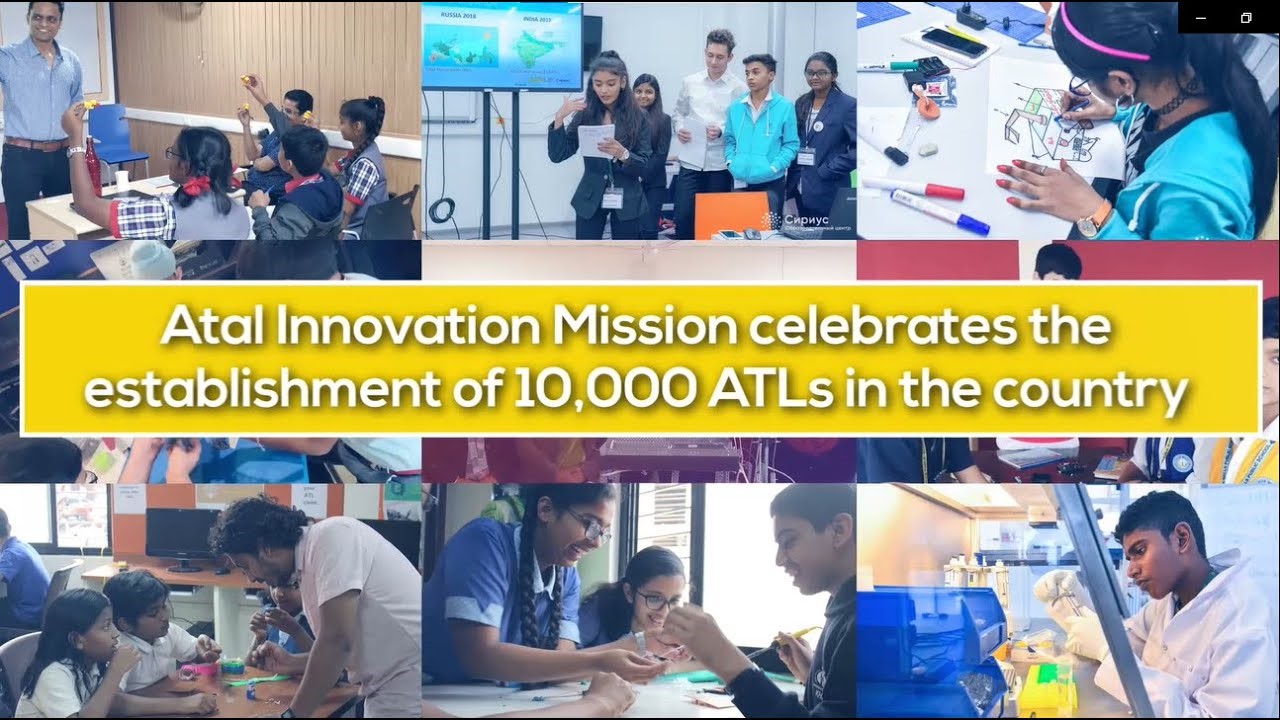AI BY DOING
Syllabus:
GS-3:
- Science and technology
- Artificial Intelligence and its Application
Why in the News?
- As Artificial Intelligence (AI) increasingly shapes how we live and work, there’s a growing call to make AI more accessible and experiential.
- AI Maker Labs can play a transformative role in this context. These labs can ensure AI becomes not just a passive subject to read about, but a hands-on experience for students—especially in K-12 education.
Why experiential learning matters for AI
The editorial underscores how hands-on learning has been central to knowledge acquisition throughout history. From cooking to coding, doing leads to deeper understanding—and this is equally valid for AI.
- Rooted in education philosophy – The approach aligns with John Dewey’s theory of experiential learning, where learners internalize concepts by applying them in real-world contexts.
- Better concept retention – Active engagement allows students to understand and remember abstract AI concepts more effectively than passive learning.
- Skill development through action – “Doing AI” nurtures problem-solving, critical thinking, and creativity, which are vital in today’s tech-driven world.
- Cognitive transformation – Students move beyond rote learning and develop computational thinking, improving how they process and analyze information.
- Turning theory into practice – Like how computer labs introduced programming, AI labs can offer tangible spaces to explore machine learning, ethics, and data training.
How AI Maker Labs Enhance Understanding
AI Maker Labs can bridge the gap between theory and practice, giving students an opportunity to build, break, and rebuild AI systems, thereby demystifying the technology.
- Real-world problem simulation – AI labs let students simulate real-world applications, making concepts like classification and prediction visually and practically understandable.
- Interactive learning environments – Students learn by experimenting with models, like teaching AI to sort recyclable materials, fostering technical and ethical questioning.
- Richer, long-term engagement – Unlike textbook-based lessons, AI labs involve weeks of immersive inquiry, leading to deeper and broader understanding.
- Learning through failure – Errors made while building models highlight AI’s limitations, like bias and inaccuracy, encouraging students to think critically.
- Inquiry-based exploration – Students start asking bigger questions: How can AI reduce waste? Why does it make mistakes? Can we improve it for national use?
Making AI Tangible and Career-Relevant
AI Maker Labs don’t just teach technology; they empower students to use AI as a tool for innovation, transforming them from consumers to creators.
- Deconstructing the AI black box – Direct interaction with AI models helps students see how AI works, including its logic and bias.
- Developing real-world problem solvers – Students equipped with maker-lab experience are more likely to apply AI to address local challenges, like waste management or agriculture.
- Promoting fearless creativity – Exposure to tools and algorithms encourages creative risk-taking, essential for future AI-based careers.
- Early tech literacy – Integrating AI in school curricula builds foundational literacy, preparing students for advanced tech roles in the future.
- Shift in mindset – AI is no longer a foreign or elite concept; it becomes part of the student’s lived experience, accessible and adaptable.
India’s Existing Infrastructure: A Head Start
India already has a vast infrastructure in place through the Atal Tinkering Labs (ATLs), which can be effectively upgraded into AI Maker Labs with strategic planning.
- Widespread lab network – Over 10,000 ATLs are operational, with 50,000 more planned, mostly in government schools, making them ideal hubs for AI literacy.
- Existing maker mindset – The ATL initiative already promotes hands-on experimentation, aligning well with the AI lab concept.
- Need for capacity building – Despite infrastructure, many labs suffer due to under-trained facilitators and underutilized equipment.
- Mentorship and ecosystem – Effective AI integration will need long-term mentorship, teacher training, and collaboration with community stakeholders.
- Focus on inclusion – Enhancing ATLs to support AI education must ensure rural and marginalized students benefit equally, not just urban elite schools.
‘Moving Beyond Hardware to Holistic Integration
The editorial emphasizes that mere deployment of devices or modules isn’t enough. A mindset shift, along with institutional support, is essential to truly realize the potential of AI education.
- Long-term planning over quick fixes – A one-time training or hardware supply won’t work; it needs consistent follow-up and teacher empowerment.
- Investing in teacher capacity – Educators must be trained not only in technical tools, but also in how to facilitate inquiry and creativity.
- Systemic support at all levels – Schools, state governments, and education departments need to actively support AI integration efforts.
- Reaching public schools first – Since most ATLs are in government schools, efforts must ensure AI labs are not exclusive to private institutions.
- Creating equitable access – Partnerships with state governments, NGOs, and training institutes are key to scaling AI labs across India.
Conclusion
AI Maker Labs represent a powerful shift—from passive consumption of knowledge to active inquiry and creation. For India, this is an opportunity to democratize access to AI education, preparing youth to not only use AI but innovate with it responsibly. With existing infrastructure like ATLs, the groundwork is laid. However, success will depend on how well India can build local ecosystems, empower educators, and bridge urban-rural divides. The journey may be long, but the end goal—a generation that builds, questions, and humanizes AI—is well worth the effort.
Source:
Indian Express
Mains Practice Question:
Integrating AI Maker Labs into school education can transform students from passive consumers of AI to active creators.” Discuss the significance of experiential learning in AI education and suggest measures for effective implementation in the Indian context.




